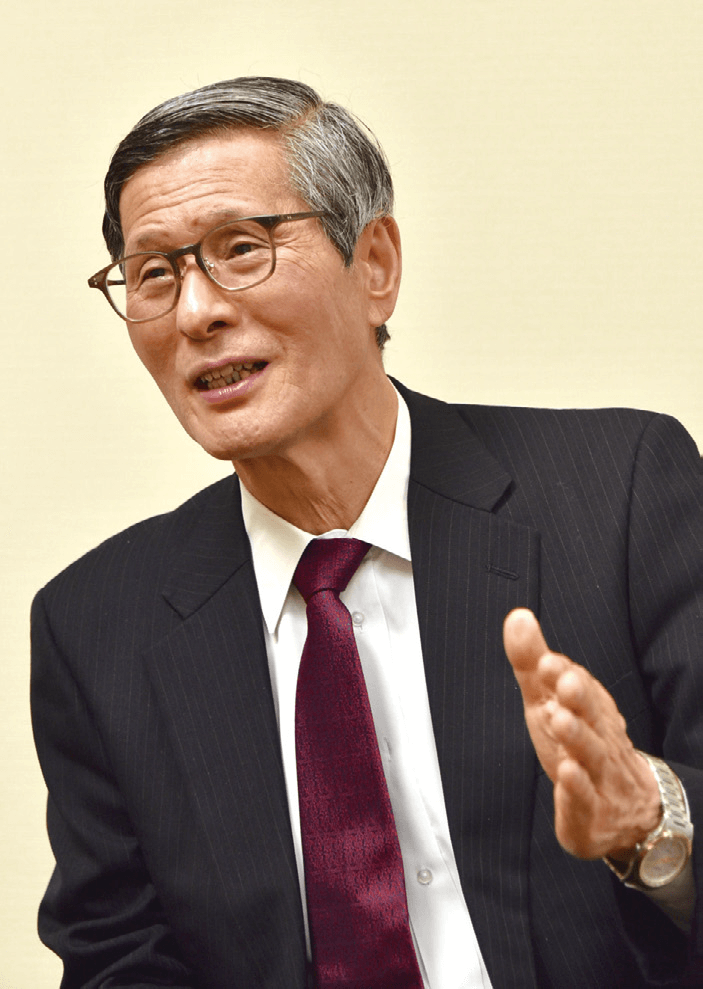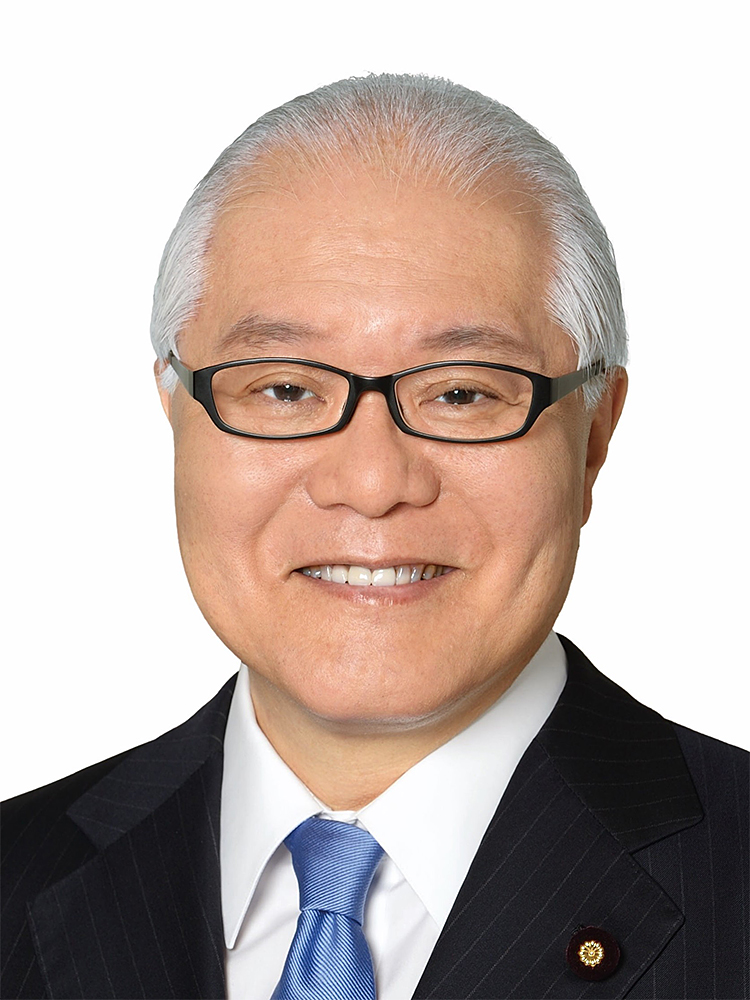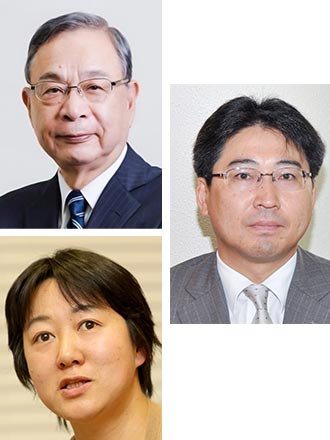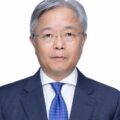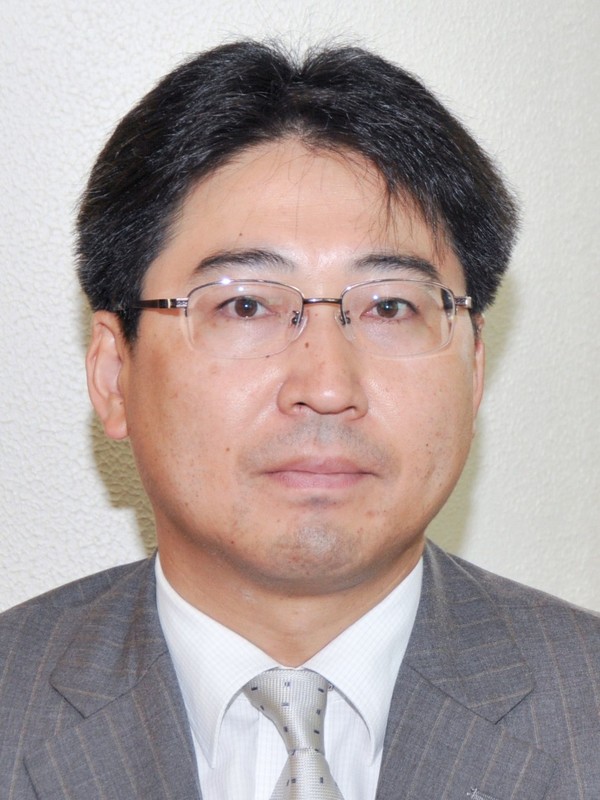A Preeminent Japanese Former International Civil Servant Reveals: Why the Pro-China Bias? – The WHO’s True Identity
Akasaka Kiyotaka, President, Foreign Press Center Japan (FPCJ)
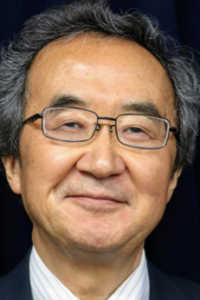
Akasaka Kiyotaka, President of FPCJ
From 1993 to 1997, Mr. Akasaka worked in the secretariat of the World Health Organization (WHO) supporting Mr. Nakajima Hiroshi, the Director-General at that time, and the first Japanese head of an international organization under the United Nations. Before and after that Mr. Akasaka has worked a total of seventeen years as an international civil servant at GATT (General Agreement on Tariffs and Trade), the predecessor of the WTO (World Trade Organization), the OECD (Organization for Economic Co-operation and Development) and United Nations Under-Secretary-General for Communications and Public Information, among others.
Currently, Mr. Akasaka conveys information about Japan’s position to overseas media as the President for the Foreign Press Center Japan (FPCJ) and verifies their news coverage of Japan.
China’s Presence
― China has been investing in African nations through its Belt and Road Initiative (BRI). Ethiopia, the home country of Dr. Tedros Adhanom Ghebreyesus, who has been the Director-General of the World Health Organization since 2017, is no exception. We see, hear or suspect that Dr. Tedros defers to China’s interests.
Akasaka Kiyotaka: I do not know Dr. Tedros as an individual, but the WHO cannot make China its enemy because China is now the world’s second-largest contributor to WHO and the WHO receives huge donations from China to fight infectious diseases. If China becomes an enemy of the WHO, it may stop its financial cooperation.
First-term heads of the WHO need to take care not to offend the five largest nations which are permanent members of the United Nations Security Council, and this is true throughout the United Nations headquarters. This is because the five nations have the ability to veto top-level personnel decisions and are in the position of being able to decide whether to allow heads to continue to serve for a second term. Secretary-General Boutros Boutros-Ghali (1992–96) was not able to stay in office for a second term because his reappointment was blocked by the United States.
The head of the WHO is elected by the members of the Executive Board and the five largest nations do not have veto power. However, no benefit can be gained from offending China. Dr. David Nabarro from England who lost to Dr. Tedros in the director-general election said, “Dr. Tedros is doing a good job. Nothing would be gained by criticizing China publicly.”
The WHO director-general election is a fierce competition. Although Japan and South Korea, who are skillful in winning votes using their diplomatic establishments abroad, have previously won the top position, China is well placed to easily collect votes from African nations which are backed by China financially.
Moreover, there are about ten Assistant Directors-General who help the head of WHO and one of them is a Chinese person. It may be said, therefore, that WHO is monitored by China.
― What presence does China have in international organizations?
Akasaka: China does not currently intend to break away from international systems and, on the contrary, is offering to act as a leader to replace the United States. This general attitude is also seen toward the WTO. China is probably taking advantage of the Trump Administration’s unilateralism. China is also positively taking part in organizations which offer many learning opportunities for China. A typical example is the OECD, where the accumulated information on tax systems and financial policies is very useful for China.
Moreover, it is widely noted that China is strengthening its grip on international organizations which are out of the reach of the United States and the Western countries. Currently, the heads of the FAO (Food and Agriculture Organization of the United Nations), UNIDO (United Nations Industrial Development Organization), ICAO (International Civil Aviation Organization) and ITU (International Telecommunication Union) are Chinese. These are organizations that the Western countries do not place great emphasis on and China is sending people one after another to fill the voids. As the alarm was sounded recently by The Nikkei in its February 15, 2020 article, “Do Not Dye International Organizations Red” and The Yomiuri Shimbun in its February 23, 2020 article entitled “Increasing Chinese Presence at the Top of UN Organizations,” China appears to be aiming for another top position, this time the WIPO (World Intellectual Property Organization).
China did not respond to the OECD regarding issues where China seeks to avoid interference, such as development policies and support for Africa, for example. In other words, China has a cream-skimming policy.
At present, I believe that China is emphasizing the WHO. This is because the world will not believe China when Xi Jinping advertises China’s track record, whereas credibility would be given to the claims if the WHO praises China’s pandemic response. It is a matter of course that every country, not just China uses international organizations to justify their own national policies, so it is not right to criticize only China.
―The WHO has accepted Taiwan’s participation in the Expert Meeting on the Novel Coronavirus this time, although it has barred Taiwan from its annual meetings and the World Health Assembly in the past.
Akasaka: China is sensitive to Taiwan’s participation in international organizations. This is not limited to China-Taiwan relations, but extends to other international organizations, often leading to intensifying confrontation.
For example, in 2011 when UNESCO admitted Palestine as a full member in defiance of opposition of certain other member states, the United States stopped its aid to UNESCO. In 2017, the United States and Israel finally withdrew from certain UN agencies. Against this background, Taiwan’s participation in the Expert Meeting on the Novel Coronavirus is a milestone event. Taiwan has also been affected by COVID-19 and the WHO probably hopes to obtain information from Taiwan.
Merits of the WHO and Director-General Dr. Tedros Adhanom Ghebreyesus
― How do you evaluate the WHO’s response to COVID-19?
Akasaka: During the 2014 Ebola outbreak, the WHO was severely criticized. However, I think that the WHO is responding quickly this time.
Let me fill in some details about 2014. When Ebola was identified in Guinea, Liberia and Sierra Leone in West Africa, the WHO left field personnel to take care of the situation, despite the reports being escalated to the highest levels. The death toll exceeded 10,000 and then-Director-General Margaret Chan admitted failure when criticized for the inappropriate initial response of WHO.
They may have learned a lesson from that previous experience and public criticism this time was not as bad in the initial response phase. This can be seen, for example, in an article by Daniel Lucey and Annie Sparrow reprinted from Foreign Policy in the January 28 Japanese edition of Newsweek, “China Deserves Some Credit for Its Handling of the Wuhan Pneumonia.”
― On January 30, the WHO announced a Public Health Emergency of International Concern, despite its previous decision to defer the declaration following the meeting of the Emergency Committee on January 22 and 23. This announcement was criticized for being late.
Akasaka: I watched Dr. Tedros talk in the January 30 press conference several times on YouTube and it was, in a word, terrible. He was not conveying facts but lavishing praise upon China, saying, “The speed with which China detected the outbreak, isolated the virus, sequenced the genome and shared it with WHO and the world are very impressive, and beyond words. So is China’s commitment to transparency and to supporting other countries.” That press conference generated a torrent of criticism from American, European and Japanese journalists, criticizing Dr. Tedros for his pro-China comments. Dr. Omi Shigeru, the former Regional Director of the Western Pacific Regional Office for the World Health Organization and current Deputy Chairman of the Expert Meeting on the Novel Coronavirus at the New Coronavirus Infectious Disease Control Headquarters also pointed this out in a press conference on February 13 at the Japan National Press Club, saying, “Director-General Tedros Adhanom Ghebreyesus praised China for doing well. However, he should have added that China’s response in Wuhan was regrettably too slow.” Dr. Tedros never mentioned anything about the response of the Wuhan authorities, despite the fact that the late response in Wuhan is what caused the coronavirus to become a pandemic.
During this time, criticism of the bureaucrats in Wuhan was growing, and it can be seen, for example, in an article in the British magazine The Economist dated February 1, which reported that although Wuhan authorities had certain information, it has been suppressed.
Another problem with the press conference was that Dr. Tedros stated that he would not recommend imposing restrictions on travel to and trade with China. This gave the incorrect impression that China was handling the matter well and that the infection would be contained, which misled the public.
Moreover, I think that the press conference undermined people’s confidence in WHO as a technical agent.
If I am to make an evaluation based on my experience being trained by international organizations in media relations several times, Dr. Tedros appears not to have been given adequate media training. First of all, he was chatting before the press conference started with a reporter whom he knew and this did not help him show how serious he was. Another big problem was that he lumped technical topics together with his impression of China’s response.
In this situation drawing attention from around the globe, a press officer or the head of the relevant bureau should give technical explanations under normal circumstances. This is because almost all professional staff of WHO have doctorates in public health. It is this expertise that is the strength of WHO. It would have been better if the Director-General had appeared in front of the reporters after explanations were given, or maybe on another occasion.
Generally speaking, persons in top positions are not thoroughly versed in the technical aspects of their positions. Dr. Tedros is not a medical doctor but served as the Minister of Health and Minister of Foreign Affairs in Ethiopia several times. He may be able to make political judgments, but there is no comparison between him and the professional staff’s expertise in providing appropriate explanations about the coronavirus.
They say the devil is in the details. Messages from the people at the top of an organization cannot not be corrected and one should know that their impact is enormous.
However, one reason for the present Director-General of WHO to appear at press conferences is, I think, the lesson learned in 2014 that I mentioned earlier. Former Director-General Margaret Chan was criticized for dealing only with certain reporters.
Let me reiterate that, although WHO’s response this time was more commendable than in 2014, the content of the press conferences should have been limited to technical information.
Japan should aim to place people in the top of international organizations.
― Turning to Japan, how do you evaluate the government’s response this time?
Akasaka: The US evacuation of Americans from the cruise ship docked at Yokohama was reported as top news by the BBC. If information is not transmitted globally when the world is focused on Japan, there may be speculative news reports and harmful rumors, such as “the virus has spread in Japan.” In order to prevent damage, accurate information backed by data, including about how hospitals are dealing with critically ill patients and what measures the government has taken, should be conveyed.
We at the Foreign Press Center Japan invite experts and host press conferences for overseas media. I believe that the Ministry of Foreign Affairs and the Ministry of Health, Labour and Welfare (MHLW) should also work to ensure transparency in a positive manner.
― In your book entitled Kokusai kikan de mita ‘Sekai no Eriito’ no shotai (True identity of world elites working for international organizations), you emphasize that one thing damaging Japan’s national interests is that only a small number of Japanese people are working in international organizations. Has Japan been able to explain its position within the WHO?
Akasaka: Currently, there are 59 Japanese nationals working at the WHO, of which 49 are career-track professional staff, with a quarter of these 49 people dispatched from the MHLW.
Ms. Yamamoto Naoko from the MHLW is currently an Assistant Director General, but not in charge of infectious diseases.
Whether or not there are Japanese people at the highest levels makes a world of difference in emergency situations. For example, when the Fukushima Daiichi Nuclear Power Station accident occurred, the late Mr. Amano Yukiya was the Director General of IAEA (International Atomic Energy Agency, 2009–19) and Japan relied on him a great deal. Moreover, when the late Mrs. Ogata Sadako was appointed head of the office of the United Nations High Commissioner for Refugees (UNHCR, 1990–2000), Japan succeeded, through the face of Mrs. Ogata, in demonstrating its approach to refugee assistance by allocating budget.
Secretary-General Ban Ki-moon (2007–16) from South Korea whom I directly assisted was criticized for being pro-South Korea. Through close communication with then-President of South Korea Lee Myung-bak and by using anecdotes about South Korea in his speeches, he contributed to the improvement of South Korea’s public image.
There is no doubt that international civil servants, most of all those at the highest levels, bring significant advantage to their home countries.
However, Japan does not work strategically enough, compared to other countries, to utilize international civil servants to further national interest.
Unfortunately, no Japanese people are currently at the top of any international organization, UN Programme or Fund. In the past, Mr. Amano, Mrs. Ogata, Mr. Matsuura Koichiro, who was the Director-General of UNESCO (1999–2009), and Mr. Utsumi Yoshio, who was the Secretary-General of ITU (1999–2007), were at that level, but no Japanese people have been at that level for the past dozen years.
This is not to say that there are no competent people. Ms. Yamamoto Naoko whom I referred to earlier and Ms. Nakamitsu Izumi, who works at the UN Headquarters, are promising. However, while Ms. Nakamitsu serves as the United Nations Under-Secretary-General of Disarmament Affairs, political officer posts are held on to by the United States, PKO-related posts by France and humanitarian support-related posts by England. Moreover, the United States will not surrender to other countries the top spots of the UN agencies that benefit the United States, such as the WBG (World Bank Group), UNICEF (United Nations Children’s Fund) and the WFP (World Food Programme).
Considering this, it would not hurt for Japan to monopolize the top positions in the WHO. I believe that another Japanese person should aim for the top post, following in the footsteps of former Secretary-General Nakajima. I believe that taking the top posts of international organizations should be a challenge tackled in earnest by establishing a command center within the Prime Minister’s Office.
Translated from “Tokushu: 21 seiki no kiki? [kakudaisuru shingata haien]—Nihon wo daihyosuru moto-kokusai komuin ga akasu: Naze Chugoku yori? WHO no shotai (Feature: “Crisis of the 21 Century? [Spread of new coronavirus]”— A Preeminent Japanese Former International Civil Servant Reveals: Why the Pro-China Bias? – The WHO’s True Identity),” Chuokoron, April 2020, pp. 54-59. (Courtesy of Chuo Koron Shinsha) [June 2020]
Keywords
- Akasaka Kiyotaka
- Foreign Press Center Japan
- FPCJ
- World Health Organization
- WHO
- coronavirus
- COVID-19
- Dr. Tedros Adhanom Ghebreyesus
- press conference
- media relations
- transparency
- Dr. Omi Shigeru
- China
- Taiwan
- United States
- Japan
- international organizations
